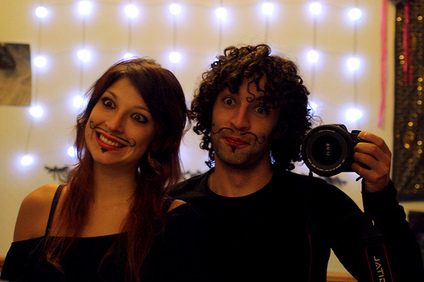But here’s who you need to ask
“It’s a natural tendency to think we know ourselves better than others do,” says Washington University in St. Louis assistant professor Simine Vazire. And at DailyHap, we encourage that kind of introspection and self-knowledge.
But a new article by Vazire and Erika N. Carlson suggests an addendum to the edict of knowing thyself: Ask a friend. “There are aspects of personality that others know about us that we don’t know ourselves, and vice-versa,” says Vazire. “To get a complete picture of a personality, you need both perspectives.” The paper is published inCurrent Directions in Psychological Science, a journal of the Association for Psychological Science.
The reason to ask a friend about our personalities is because our own understanding is obstructed by blind spots, created by our wishes, fears, and unconscious motives—the greatest of which is the need to maintain a high (or if we’re neurotic, low) self-image, research shows. Even watching ourselves on videotape does not substantially alter our perceptions—whereas others observing the same tape easily point out traits we’re unaware of.
Not surprisingly, our intimates and those who spend the most time with us know us best. But even strangers have myriad cues to who we are: clothes, musical preferences, or Facebook postings.
Interestingly, people don’t see the same things about themselves as others see. Anxiety-related traits, such as stage fright, are obvious to us, but not always to others. On the other hand, creativity, intelligence, or rudeness is often best perceived by others. That’s not just because they manifest themselves publicly, but also because they carry a value judgment—something that tends to affect self-judgment. But others tend to give us higher marks for our strengths than we credit ourselves with.
At the same time, our nearest and dearest sometimes have reasons to distort their views—a parent’s child will always be the brightest and most beautiful. The challenge, then, is to use feedback positively: Vazire asks, “How do we use self-knowledge to help people be happier and have better relationships?”
The first answer to these questions may be the most obvious, but not the easiest to practice: Listen to others. They may know more than you do—even about yourself.
Image: Some rights reserved by Simone Artibani

